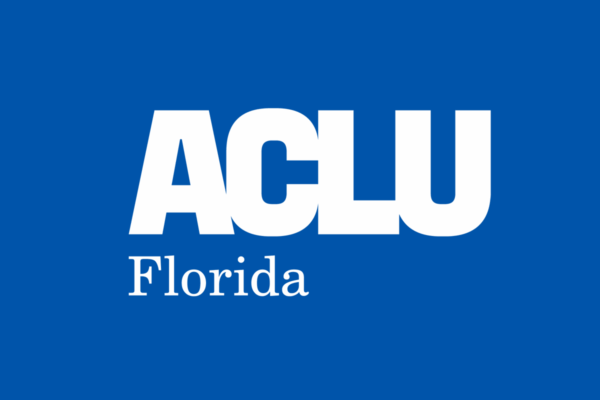MIAMI, FL – Legal Services of Greater Miami, Southern Legal Counsel, American Civil Liberties Union (ACLU) of Florida, and ACLU of Florida Greater Miami Chapter today filed a federal lawsuit challenging the City of Miami’s practice of destroying the personal property of people experiencing homelessness in violation of their constitutional right to be free from unreasonable seizure, as well as their right to due process.
“The City of Miami has reverted to its decades-old practice of ignoring the Fourth and Fourteenth Amendments of the United States Constitution and depriving residents of their rights, rather than working to address homelessness in an effective and humane way,” said Benjamin Waxman, cooperating attorney for the ACLU of Florida Greater Miami Chapter. “They claimed to have changed their ways, but since they clearly have not, we are taking them to court again.”
The lawsuit, filed today in the U.S. District Court for the Southern District of Florida, Miami Division, seeks compensation for the lost property and an injunction against any future confiscation and destruction of a person’s property without a lawful justification, proper notice, a reasonable opportunity to be heard, and due-process protections.
In their complaint, the advocacy groups describe the City’s sweeps of homeless encampments as being conducted with little or no notice, and without giving people the opportunity to secure their property to avoid destruction.
“When conducting the sweeps, the City often gives homeless individuals only a few minutes to move their belongings. If the person cannot move their personal property, the City removes and destroys it. If the individual is not present during the sweep, the City removes and destroys the personal property without giving them any means to secure or retrieve their personal possessions,” the complaint states. “The City’s actions deprived Plaintiffs of personal property critical to their survival, such as government-issued identification documents, medication, and clothing, as well as irreplaceable personal possessions.”
“People experiencing homelessness are entitled to the same constitutional protections of their property as anyone else,” said attorney Jeffrey Hearne, director of litigation at Legal Services of Greater Miami. “These protections are even more important to them because when the government seizes and destroys their property, they often lose everything they own.”
The experiences of plaintiffs Latoyla Yasheen Cooper-Levy, Phillip Sylverin, Sherman Rivers, and Joseph Simmons cited in the complaint demonstrate the devastating nature of the sweeps.
- Cooper-Levy had been living at NW 17 St. and 7th Ave. for about three years when in May 2021 she left to attend orientation for a new job. Without notice, the City destroyed her U.S. passport, birth certificate, Social Security card, identification, telephone, clothing, work uniform, shoes, a sleeping tent, and an urn containing her mother’s ashes. Unable to purchase a new uniform, she lost her job.
- Sylverin had been living on NW 11th St. near or under the I-95 bridge for about three years. He used a wheelchair for mobility, but was unable to move most of his personal property within the limited time given by the City. The City used a crane to remove his belongings, including his tent, identification documents, furniture, and family photos. His pet cat was inside the tent when the City placed it in a dump truck and was presumably killed.
- Homeless for about 30 years, Rivers resided under the bridge on NW 11th St. between NW 5th Ave. and NW 3rd Ave. He was at work when City employees arrived and destroyed his belongings, including his tent, birth certificate, identification, public benefits cards, prescription medications, new clothing, shoes, a bike, toiletries, and $60 in change.
- Simmons resided under the bridge on NW 11th St. between NW 5th Ave. and NW 3rd Ave. Homeless for about three years, he had received no notice when the City conducted a sweep in early August 2021, placing into a dump truck his tent, clothes, furniture, medication, glasses, dentures, identification documents, coin and stamp collections, and jewelry.
The sweeps described in the complaint come in the wake of a federal court’s termination in 2019 of the Pottinger consent decree, an agreement that for two decades had regulated the City’s interactions with people experiencing homelessness. The consent decree, which resulted from Pottinger v. City of Miami, was in response to what the City admitted in court was its “practice of criminalizing homelessness and the systematic disposal of homeless persons’ property,” a practice the complaint alleges the City quickly resumed.
Jodi Siegel, executive director of Southern Legal Counsel, said cities around the country have been learning the hard way that they cannot solve the problem of homelessness by violating the Constitution.
“This is just one more case in which the law is not on the City’s side,” Siegel said. “If cities would apply their resources to finding permanent solutions to homelessness rather than repeatedly trying to sweep people and all their worldly possessions away, we could not only avoid a lot of litigation, but we might actually make some progress as a society.”
A copy of the complaint filed today is available here: https://www.aclufl.org/app/uploads/drupal/sites/default/files/de_1_complaint.pdf
Stay Informed
Sign up to be the first to hear about how to take action.
By completing this form, I agree to receive occasional emails per the terms of the ACLU’s privacy statement.
By completing this form, I agree to receive occasional emails per the terms of the ACLU’s privacy statement.

